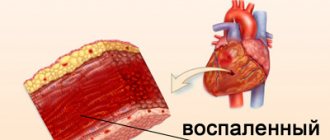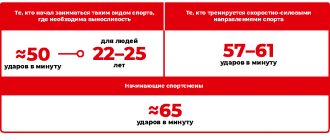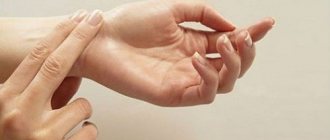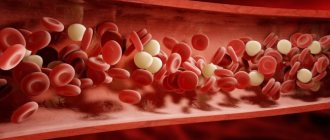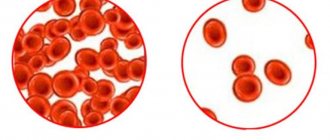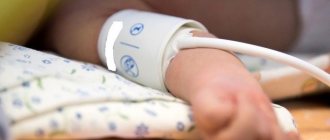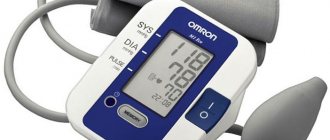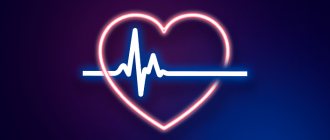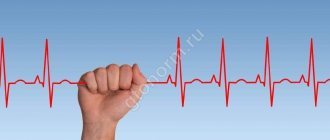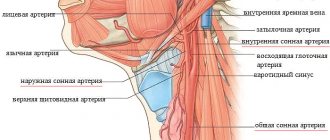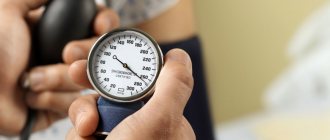The natural physiological state of “sleep” occurs every 24 hours throughout a person’s life. Its entire period covers 5 stages and begins with “slow”. At first, a person is drawn to sleep, then brain activity decreases, and internal processes slow down.
Your heart rate changes during sleep. During the dreaming period, the body is cleansed, tissues and organs are restored, and energy accumulates. This means that healthy sleep makes the necessary reboot of the entire body for the next day’s activity.
What affects a sleeper's heart rate?
Pulse is one of the types of biomarkers, relying on its indicators to determine the general condition of the human body. At the time of sleep, jerky oscillations in the artery decrease, the functions of the cardiovascular system slow down, and metabolic processes weaken. Cells require less oxygen.
This process regulates the activity between organs, some are stimulated, others, on the contrary, arrive in complete relaxation. Heart rate and intensity are affected by:
- gender identity;
- age;
- physical state.
The more trained a person is, the lower the heart rate reduction. For men, the difference is considered to be in the range of minus 5-10 beats. In children, compared to the older generation, pulsation increases by 25-30 beats/minute.
Reasons for changing frequency
Changes in heart rate are provoked by certain physiological conditions:
- drinking alcohol, coffee drinks, certain medications;
- hard physical labor and training in sports complexes;
- emotional impulses (experience, fear, fright, joy, stress).
A hot climate changes body temperature and causes an increased heart rate. At night, biorhythms slow down by 1.5 times, and at 4 am the lowest parameters are observed. This is due to the functioning of the vagus nerve, which suppresses the functioning of the cardiovascular system. The pulse during sleep in an adult can reach up to 30 beats/minute. Most often, the risk of a heart attack occurs between 4 and 6 hours.
Important! It is necessary to pay attention to the number of beats per minute on the left and right hands; if they differ, it means that blood circulation in the limbs is impaired.
The body gradually enters a state of rest, the brain sends signals about the upcoming rest. Before going to bed, the pulse ranges from 55-60 beats/minute, but this is if the person falling asleep is in a non-irritated state and does not have heart disease. Complete peace occurs in the first phase of the dream and in the early morning, the frequency of pulse vibrations is low.
Heart rate slows down slightly before bed
Treatment
Complex. Etiotropic treatment depends on the specific cause of the pathological process and is aimed at eliminating it. An approximate list of activities is given in the table:
| Development factors | Elimination methods |
| Heart problems described above: previous heart attack, mitral valve stenosis, cardiosclerosis, congenital and acquired malformations, etc. | Preparations based on caffeine and acetylsalicylic acid are prescribed: Aspirin-cardio, caffeine tablets. If ineffective, surgical treatment and installation of an artificial pacemaker (pacemaker) are indicated. |
| Chemical poisoning. | Detoxification with large amounts of saline and intravenous glucose. In difficult cases - dialysis. |
| Hypothyroidism. | Hormone replacement therapy. |
| Disturbances in the functioning of the nervous system. | Tranquilizers, mood stabilizers (antidepressants), neuroleptics (with great caution, they themselves provoke bradycardia), light sedative drugs based on herbal components (Valerian and Motherwort in tablets). |
| Brain tumors. | Removal operation. Chemo- and radiotherapy for malignant process. Neoplasia in the trunk of cerebral structures suggests palliative care measures. Few people will undertake elimination; it is often impossible due to the invasiveness of the structures growing in a given localization (mainly, these are gliomas of 2-3 degrees of malignancy, quickly developing into glioblastomas). |
| The result of taking medications. | Dosage adjustment, prescription of other drugs. |
With a weak pulse, folk remedies are also used, but only as an aid to the prescribed treatment:
- Eleutherococcus tincture (a teaspoon 2 times a day or more, as agreed with your doctor).
- Caffeine. A surrogate instant drink will not work. Ground coffee is better. Drink 2 cups per day or more, again on the advice of a specialist.
- Ginseng tincture. Created on your own. 20 grams of raw materials per 500 ml of vodka or alcohol. Time until ready: 25 days. Take 40 drops for 30 days. Next is a break. Repeat if necessary.
Increasing the pulse value is carried out using systematic methods. It is important to observe moderation. This is where you will need a doctor.
If no diseases are identified during the diagnostic process, then specific treatment is not required; it is enough to limit ourselves to preventive measures.
Normal for an adult during sleep
Wakefulness is a stage of life with high activity of organs, tissues, and cells. Everything is in a running mechanism, the pulse is actively beating. Rest and dreaming are the opposite of wakefulness, which implies a weakening of all sources of energy in the body.
The process of slowing down arterial impulses begins to be observed at the moment a person is sent to the kingdom of Morpheus. Studies by medical scientists have found that during wakefulness the pulse should be 8-10% stronger than at rest. However, everything depends on other factors: age, gender, psychological and physical aspects.
Impact on heart rate of sleep phases
Human behavior during the day has several phases that replace each other and thereby affect the pulse. At night the same thing happens, depending on the sleep phase (there are 5 in total), the pulse changes. The intensity varies from highest to lowest, and vice versa.
In the first four phases of the dream, gradual relaxation and deepening of sleep occurs. The heart muscle begins to contract more slowly, and the pulse also slows down. This is the majority of normal sleep, approximately 80%.
Fifth stage of sleep
The phase is a parameter of REM sleep, when a person dreams, at this time physiological processes change. In particular, an emotional reaction occurs that provokes cardiac impulses with an increase in the frequency of beats per minute. It is even possible to exceed normal levels of wakefulness.
Also in this phase, other physiological processes can be launched:
- increased breathing;
- sweating;
- body movement.
This also provokes an increase in pulse impulses. If you are not dreaming or the person is dreaming with pictures of a calm genre, the pulse will be stable throughout the night, without fluctuations. If we talk about the ideal pulse, then 70 beats/minute is the most favorable indicator that confirms the normal heart rate of a healthy person.
Israeli scientists believe that a decrease in heart rate during sleep increases the risk of death several times. Their verdict is that you can live with this frequency of contractions for only 7 years.
Numerous studies prove that people with extra pounds, obesity, diabetes, and hypertension are susceptible to slowing down their heart rate.
Symptoms requiring an ambulance call
Among the characteristic dangerous manifestations:
- Chest pain. Moderate or weak intensity. Not always present.
- Heart rhythm disturbances. Decrease, weakening. There may be a sensation of skipping beats, slowing down, or fluttering.
- Dyspnea. In a state of complete rest. The manifestation intensifies with physical activity.
- Drowsiness, weakness, decreased performance within significant limits.
- Headache, vertigo. Cerebral moments. Indicate insufficient blood circulation to the brain.
- Impaired consciousness. Up to deep repeated fainting during one episode of low pulse.
- Panic, a feeling of fear, impending death or threat. This is a mental reaction of the body to a violation of the conditions of existence. You need to pull yourself together. In the hospital, intravenous sedation with mild drugs (mild tranquilizers) is performed.
- Pale skin in the system with hyperhidrosis, tremor, cyanosis of the nasolabial triangle.
In general, any suspicion should be grounds for calling an ambulance. There is no point in being shy or afraid of overloading doctors with work or taking someone else’s place. The dispatcher ranks cases according to urgency.
Increased heart rate during sleep
Reducing the impulses of the cardiovascular system during rest is considered natural for a healthy person. Medical experts confirm the dependence of heart rate rhythms on the effectiveness of sleep, its depth and quality.
In most cases, sleeping people see dreams in color or black and white. Beautiful and pleasant dreams periodically change to nightmares, which affect the nervous system. The result may even be a jump in blood pressure. But this is not the only thing that affects the quality of dreams.
Tachycardia in the morning
Heart rate fluctuations during sleep can also cause:
- changes in the functioning of the thyroid gland;
- prolonged stress and depression;
- impaired blood circulation;
- slagging of the body and intoxication;
- internal bleeding;
- lack of water in the body.
Tachycardia harms proper sleep, causing anxiety with possible headaches and pressing pain in the chest.
What can you do at home?
Little. It is not known what caused the violation. Therefore, any amateur activity is excluded. An ambulance is required.
If this is not the first attack of bradycardia and there are doctor’s recommendations, you can limit yourself to basic measures, then visit a specialist as planned.
The general algorithm is:
- Open a window or window to ensure room ventilation and oxygen saturation of the blood. If this is not done, fainting and problems with the central nervous system are possible. The risk of stroke increases.
- Remove tight body jewelry and loosen the collar. Pressure on the carotid sinus will reflexively lead to a drop in heart rate, which will have a fatal effect on hemodynamics.
- Sit down. Relax. Before this, if you have tincture of eleutherococcus or ginseng in your medicine cabinet, take it. Not all together, just one thing. 25-35 drops. This will help increase your heart rate by 10-15 beats.
- Take prescribed medications (if you have consulted a doctor).
Wait for the brigade to arrive. Talk about how you feel. Hospitalization is rarely required, but doctors may suggest this option as a preventative measure. There is no point in refusing.
Indicators after waking up
The morning hours are the calmest, the time when people wake up in a peaceful state. But the pulse, both in adults and in children, is observed to be rapid. This is a completely normal situation due to a sudden awakening. After 5-10 minutes, the pulse beats normalize and stabilize.
After waking up, the body's functions switch to daytime mode and begin their activity. If the pulse quickens, this may be the result of restless dreams, which are most often caused by stress, anxiety, emotional arousal, or indicate cardiac problems responsible for blood circulation.
Cardiologists do not recommend a sharp rise to a vertical position; this puts a lot of stress on the heart muscle. Natural recovery consists of a gradual awakening; after waking up completely, you need to lie down for a few minutes to restore cardiac functions.
There are situations when, after waking up, weak pulse beats are observed. In order to raise them to a normal level, they do morning exercises and yoga. A pulse of 40 beats per minute is a reason to consult a doctor.
Athletes and those who are actively involved in physical education have larger hearts than those who are indifferent to training. This is due to the fact that the heart is a muscular organ. With moderate loads, it increases in size, as a result, it safely pumps blood, which normalizes blood pressure. The most important thing is that it strengthens the entire cardiovascular system.
What you should never do
- Be physically active. Some particularly active patients begin to do push-ups, run, jump, and breathe heavily. It's too much. Such measures entail excessive stimulation of cardiac activity. If there is a mismatch between needs and possibilities, cardiac overload and tissue ischemia will occur. It’s hard to say how this will end. Nothing good for sure.
- Take unfamiliar drugs. Just what the doctor prescribed. In the absence of recommendations, they are limited to tinctures. They should be in every person's first aid kit.
- Go to the bath, shower. Wash with cold water. Any thermal effect will lead to disruption of vascular tone. A spasm is possible, then cardiac arrest occurs. Or expansion and strengthening of peripheral blood flow with insufficient supply to the myocardium. The outcome is the same.
First aid is aimed at preventing complications and stabilizing the patient's condition. Everything else is the task of the doctors.
How to measure a sleeping person's pulse
There are several ways to check the pulse rate of a sleeping person. The first is the traditional pressing of the fingers on the wrist and counting the number of blows. You can ask a close relative who will measure your pulse in different phases of sleep.
Another way is a modern heart rate monitor device with a built-in alarm clock. Its functions are to count the rhythmic beats of the arteries. During sleep, the device reads various indicators related to the body:
- reflects the position;
- draws up schedules;
- records sleep phases and number of beats.
A heart rate monitor is a device that allows you to measure your heart rate during sleep.
Then it analyzes all the collected data and determines a favorable time to wake up, which gives a signal to the built-in alarm clock to vibrate. The “heart rate monitor” is a great way to determine the quality of sleep and check the functioning of the cardiovascular system at rest. These are also analytical system indicators that reflect the health of a sleeping person.
Baby's pulse in sleep
A growing child's body develops with significant differences in pulse rate between daytime and evening. To determine the accuracy of a child’s pulse, you should measure pulse impulses at the same time for two days. To do this, the child is put to bed and the pulse is checked during the dream, relying on the following points:
- Measurement of pulse beats on both wrists - the indicators should be the same. If there are deviations, this indicates a circulatory disorder or is a sign of a disease.
- If a child has a high temperature due to a cold, then this factor must be taken into account when measuring; pulse vibrations will be much more frequent.
Age-related changes also affect the heart rate, which affect many processes in the body of babies. First you need to compare your pulse during the day, then take a measurement at night. Your heart rate should be lower during sleep.
Average normal heart rate values for children during sleep
The average values for parents' orientation when measuring children's pulse at night are given:
| Child's age | Impact range/minute | Average beats/minute |
| from 1 to 3 months. | 100-155 | 120 |
| from 4 to 12 months. | 90-150, | 110 |
| 2 years | 82-140 | 105 |
| 3 years | 80-120 | 90 |
| 4 years | 78-118 | 90 |
| 5 years | 75-110 | 85 |
| 6 years | 75-90 | 84 |
| 7 years | 75-82 | 78 |
| from 8 - 9 years | 73-78 | 76 |
| from 10 -11 years | 70-75 | 73 |
Prevention of bradycardia
In order to prevent heart rate from falling below normal, it is recommended:
- monitor your pulse daily when using medications for blood pressure and tachycardia;
- devote at least 30 minutes a day to therapeutic exercises, yoga, and walk in the fresh air for about an hour;
- The diet should contain proteins (lean fish, meat, dairy products), vitamins and microelements (fruits, berries, herbs), sources of iodine (seafood, algae, persimmon);
- If you have heart disease, undergo regular examination by a cardiologist and an ECG.
We recommend reading about how to measure your pulse. From the article you will learn why heart rate is measured, the norm of the indicator, methods of measuring heart rate with modern gadgets and devices, and self-measurement of heart rate.
And here is more information about what is the normal heart rate for pregnant women.
A pulse of 50 may be normal in athletes who have a congenital tendency to bradycardia; it occurs with diseases of the heart, nervous system, or hormonal imbalances. For treatment, you need to undergo an examination; drugs are prescribed only if low heart rate is poorly tolerated.
